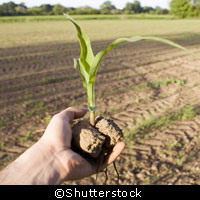Climate change threatens global food and water supply
Scientists from all over the world representing some of the most prestigious national academies of science from the countries of the G8 (Canada, France, Germany, Italy, Japan, Russia, the United Kingdom, the United States, and the presidents of the European Council and the European Commission), Brazil, China, India, Mexico and South Africa have issued a warning that is making people sit up and take note. 'Food and water shortages are now a dangerous reality particularly in many developing countries,' exclaimed Martin Rees, President of the Royal Society which is the national academy of science of the UK and the Commonwealth. This bleak situation is only going to get worse if current trends are not changed. 'In the coming years, they will be aggravated by rising populations, and climate change,' Professor Rees continued. 'These threats must be properly assessed and solutions identified if we are to avoid costly mistakes from investing in technologies and infrastructure that do not take climate change into account.' This is not the first time that the scientists from the Academies of Science for the G8+5 countries have raised their concerns over global warming. In 2005, they called on world leaders to limit the threat of climate change and advised on a course of action that would deal with its causes. Unfortunately, progress in reducing global greenhouse gas emission has been slow. Since then, the 2007 Intergovernmental Panel on Climate Change (IPCC) reaffirmed that not only is climate change happening, but that anthropogenic warming is influencing many physical and biological systems. Water resources are most vulnerable, along with food supplies, health, coastal settlements and some ecosystems, in particular, the arctic, tundra, alpine, and coral reef ecosystems. The most sensitive regions are most likely to include the Arctic, Africa, small islands and the densely populated Asian mega-deltas. In their latest statement, they not only raise attention to the need for adaptation to climate change but also the need for concrete action to be undertaken to reduce greenhouse gas emissions. They call for governments to agree, by 2009, to a timetable and funding, as well as formulating a coordinated plan for the construction of a significant number of carbon capture and storage demonstration plants. The issue of carbon capture is a very important point when one realises the role that coal derived energy will play in the future. According to Martin Rees, 'Coal will continue to be one of the world's primary energy sources for the next 50 years. If coal burning power plants and industries continue to pump out carbon dioxide unabated, we face a growing risk of triggering a dangerous and irreversible change in the climate. 'Techniques for carbon capture and storage must therefore be developed urgently. So much is at stake that current efforts are quite inadequate. The nations at the G8 summit should commit themselves to a much expanded and coordinated programme. The sooner this technology can be proven and widely adopted, and annual carbon dioxide emissions stopped from rising, the lower the risk of catastrophic climate change.' The statement was delivered to the Japanese Government who is hosting the next G8 meeting on July 7-9. The Academies also presented a statement raising awareness on global health issues. They stressed the need for greater international collaboration and coordination on health issues such as water, sanitation, hygiene, food safety, access to medical information and treatments and training for health professionals.



